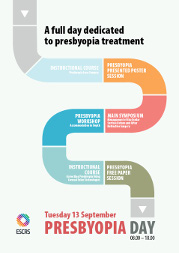Posters
Biomarkers for diagnosis of glaucoma in Korea
Poster Details
First Author: K. Yi KOREA, SOUTH
Co Author(s): E. Kim Y. Shin K. Han
Abstract Details
Purpose:
To evaluate the biomarkers for diagnosis of glaucoma in Korea and racial differences between the present and previous studies
Setting:
cross sectional study
Methods:
Volunteers with/without glaucoma were enrolled between January and October 2015. The analyzed biomarkers included anti-Sjögren's-syndrome-related antigen A (SSA), anti-Sjögren's-syndrome-related antigen B (SSB), heat shock protein 60 (HSP60), anti-myelin basic protein (MBP), anti-alpha-fodrin and anti-nucleic acid (ANA). Qualitative and quantitative analyses were performed on these samples.
Results:
Among the 42 volunteers, three were excluded owing to blood-sample hemolysis. The remaining 39 patients were divided into their respective groups: glaucoma (22) and normal (17). The glaucoma group included two types of glaucoma: normal-tension glaucoma (NTG: 14 patients) and primary angle-open glaucoma (POAG: 8 patients). The serum ELISA titers of the antibodies against MBP were higher in the glaucoma than in the normal controls. And the levels of antibodies against SSA, SSB and alpha-fodrin significantly differed between the NTG and POAG groups.
Conclusions:
These findings suggest that biomarker patterns can differ between normal, NTG and POAG groups. Certainly, autoimmunity has a potential role in the development and progression of glaucoma, and its mechanisms in the forms of biomarkers can be utilized as effective glaucoma-diagnostic tools.
Financial Disclosure:
NONE





